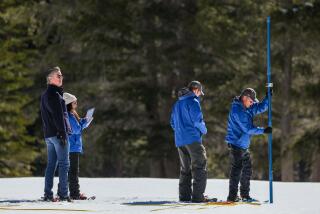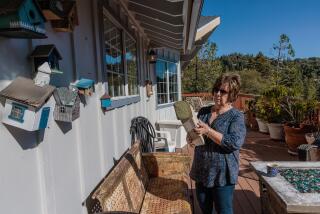The Politics of Snow Removal
For seven months from 1981 to 1982, I lived in my familyâs cabin in the southern Sierra. The cabin was at 7,300 feet in a small development called the Ponderosa, which included several dozen vacation and retirement homes and a lodge owned and operated by a man named Pete.
Shortly after I arrived in late August, I was in the lodgeâs bar when Pete himself asked me to join the snow pool. For a dollar, I could predict the date of the first snowfall. I could enter as many times as I wished. The kitty was already around $300.
The first snowfall came, as it often did, early in the season, the first week of October. I did not win. By the time the woman who did win made it to the lodge, half her pot was gone. As usual, once snow started sticking, Pete had thrown open the bar, charging all drinks to the winnerâs tab.
That first snow, of course, was only a presage; it vanished quickly and the performance wasnât repeated for weeks. I remember a bald Thanksgiving, and only at Christmas was there finally enough snow for cross-country skiing.
Once it stuck to the ground, however, the new--and only--topic of conversation in that small mountain community became snow removal. For the next six months, nothing else mattered. The snowplow was community-owned, and the man who would run it for the year was decided at a heated community meeting in July. There were limited employment opportunities on the mountain, especially in the winter, and three or four men always wanted the snowplow contract badly. They entered bids often accompanied by emotional pleas. Over the years, the job usually passed from one man to the next in a fairly equal fashion, but such was the emotional nature of the decision that there was always a sense of victory and defeat, as if this was a real-life version of King of the Mountain. While the person in charge of snow removal definitely made some money, I found it hard to imagine that the rewards compensated for the sheer rancor and hate directed toward him for the duration of the snow season.
For there was no way, ever, that the snowplow coordinator could make everybody happy. After all, he had to start plowing somewhere, and anyone who lived at a distance from the starting point immediately felt gravely offended. Old favors were constantly recalled and recited, old enmities rekindled, new enmities instantaneously ignited. People came up with countless reasons why their roads and driveways should be plowed first. Those who commuted to jobs felt a cleared driveway was more important for them than for the older retired folks. The older retired folks, however, argued that age made their health tenuous: what if they suddenly had to go to the hospital? Everybody--except me, it seemed--had a good reason why their road and drive should be first. I really didnât care when, or even if, my driveway was plowed. I wasnât going anywhere.
My attitude, however, did not exempt me from the rancor of snowplow politics. Once, at the lodge, a couple I quite liked snubbed me. Perplexed, I mentioned the snub to a mutual friend, who explained that they were angry because my driveway had been plowed before theirs. The snowplow driver had done this, they claimed, because he had a crush on me. He had a crush on me, they said, because Iâd flirted with him. I flirted with everybody, I protested, but never with snow plowing in mind. My protests fell on deaf ears, and I understood just how deeply my neighbors were sunk in a snow-removal mentality. Of course I flirted with snow removal in mind, they believed. Why else would anyone flirt?
The year I lived at the Ponderosa, a foot or two of snow fell here and there--enough so that Iâd had a good taste of snowplow politics by January--but the first major snowfall didnât come until mid-February. âWelcome to your first big Sierra dump,â a friend said. I parked my car down on the road, knowing it could be a week or more before the snowplow driver would have time to plow individualsâ driveways. I settled in for the show. As the snow continued falling, the lawn furniture on the front deck went from blanketed to padded to overstuffed, and then finally lost all reference to furniture, becoming huge, amorphous, Brancusian.
I had plenty of food and plenty of wood. But after three days, there was nothing in the house to drink. On the afternoon of the third day, the snow stopped falling and I called my nearest neighbors, a retired couple named Davidson, and asked if, by any chance, they might have a spare bottle of bourbon. This question was not so out of the blue as it might seem. Everyone on that mountain was serious about drinking.
âYes, absolutely, dear. Come on over,â Miranda Davidson said. âAnd better dig out your car on the way. The snowplow hit it the other night.â
Taking a shovel and a broom, I started down my driveway, a couple hundred feet of asphalt with one sharp bend--our own private switchback. Snow was up to my armpits. The top two feet were powder, but the bottom layers were wet and then crusted. I kept breaking through and having to pull my legs up out of the packed snow. My progress was slow and exhausting. I fell sideways once into a suffocating world of white, and for a long moment could find no purchase, no way to climb up through what felt like deep, cold, granular sand. Remembering a cross-country skiing trick, I crossed shovel and broom and found a point of ballast.
In good weather, at an average pace, I could be down the driveway in 30 seconds. Today, swimming in snow, it took me a good 20 minutes.
Once on the road, I stuck the broom handle in the berm until I found my little Subaru. I dug and swept, exposing the driverâs side, a bit of roof and the rear of the car. The snowplow had cracked a taillight casing. Once the car was semi-visible, I continued up the road to the Davidsons.
Although the plow had gone through two nights before, another two feet of snow had fallen and the road was not navigable by car and was slow going on foot. It took me another 20 minutes to walk the equivalent of one city block. From the Davidsonsâ driveway, a narrow chute had been cut to the front door.
The Davidsons had been our mountain neighbors for 20 years. Casey was a pale, mild man utterly devoted to Miranda, a tiny woman with thick glasses and the smallest hands Iâd ever seen on an adult.
âCasey blew the walkway just for you,â Miranda said, opening the door. She motioned me inside, directing me to the fireplace. âCasey, bring Michelle a drink,â she said. âAnd bring me another drink and half a pill.â
Casey and Miranda were cozily, happily, deeply into their cups, a state possible only after days of impassable weather in a toasty home, with a fridge full of food and an endless, steady flow of bourbon. Perfectly functional, they appeared much like sober people, only more blurred and slowed, with an intense, slightly wavering calmness. A lot of drinkers donât know how to get to such a sweet, well-modulated pitch of intoxication, let alone stay there. Casey and Miranda, after many winters of burrowing in, had the drawn-out, exquisitely pitched drunk down to an art. I had several unhurried drinks with them, the three of us gazing out the Thermopane while twilight gathered. Snow turned blue, and wind started soughing through the trees as if some great god in a corner of the sky were heaving huge, soundless sighs. Snow tumbled from nearby branches with such force that it hit the ground like rocks; we felt the impact inside the house. Another sound, grinding and mechanical, bled into the room, and soon the snowplow appeared on the road, casting its eerie gold light onto the high blue berms and sending a wing of snow high into the air.
âStop by any time,â Miranda said and handed me a shiny, unopened quart of Early Times. I made it home in about five minutes. Not only had the road been scraped down to a thin, gritty white skin of snow, my driveway had been plowed way up past its elbow. Although this bit of unrequested favoritism would again cost me socially, it seemed like--and, given my foolhardy state of intoxication, surely was--a miracle at the time.
More to Read
Sign up for The Wild
Weâll help you find the best places to hike, bike and run, as well as the perfect silent spots for meditation and yoga.
You may occasionally receive promotional content from the Los Angeles Times.






